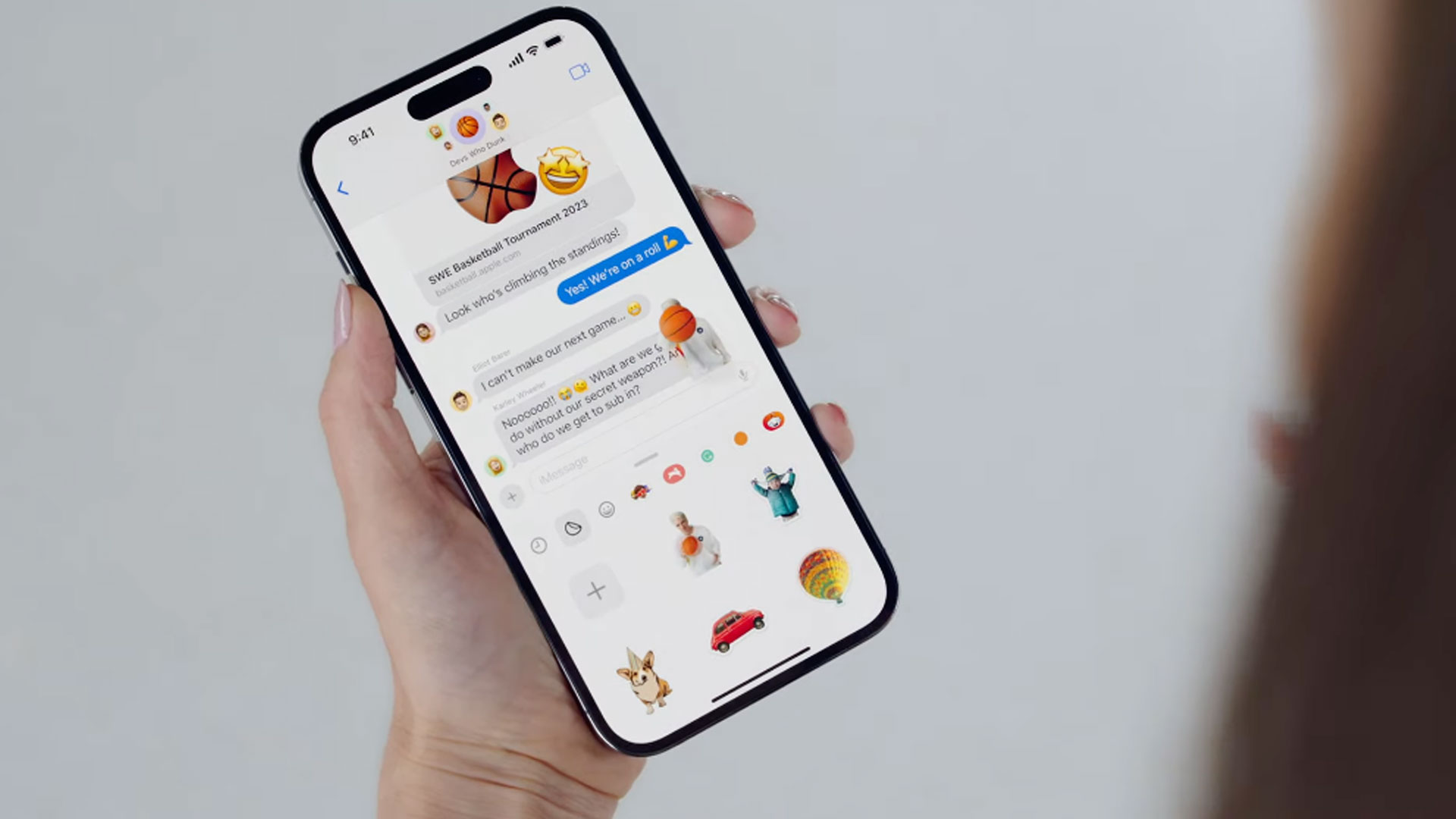The EU won't force Apple to open up iMessage - at least not yet
iMessage isn't a big enough player in Europe to be forced to adopt RCS

Apple isn't going to be forced to open up iMessage to supporting RCS messaging, and thus compatibility with third-party apps... at least not yet.
That's because despite being labeled as a 'gatekeeper' in the EU's Digital Markets Act, Apple's iMessage hasn't been flagged as a "core platform service" – basically a device used by masses of people and thus won't currently be completed by the EU to integrate RCS. The whole thrust of adopting RCS is to encourage healthier competion between messaging services, and prevent some providers from creating monopolies.
Apple has argued that iMessage has only 45 million users in the European Union, and the adoption of iMessage is too small for it to be beholden to the Digital Markets Act. The European Commission is investigating these claims.
"The Commission has opened four market investigations to further assess Microsoft’s and Apple’s submissions arguing that, despite meeting the thresholds, some of their core platform services do not qualify as gateways," the Commission said in a press release. "Under the DMA, these investigations aim to ascertain whether a sufficiently substantiated rebuttal presented by the companies demonstrates that services in question should not be designated. The investigation should be completed within a maximum of 5 months."
“We remain very concerned about the privacy and data security risks the DMA poses for our users. Our focus will be on how we mitigate these impacts and continue to deliver the very best products and services to our European customers," the company told Apple-focused tech blog iMore in a statement.
Should Apple's defense against this investigation fail, it may need to reconsider its stance on iMessage's accessibility. It is not clear how Apple would bring its service in line with the regulation, should it lose. Though we've been referring to "iMessage" throughout this article, iMessage is often used colloquially to refer to both the iMessage instant messaging service and the Messages app that handles both iMessage and SMS messaging.
Would Apple opt to launch an iMessage app for Android, or would simply integrating RCS, like Google does, be enough as some suggest? Apple likely hopes to not have to answer that question.
Sign up for breaking news, reviews, opinion, top tech deals, and more.
Apple may have a point
Though iMessage predominantly dominates tech discourse, primarily driven by US-based media, it is not a big deal in parts of Europe.
Even in the UK, where iOS and iPhones own a healthy percentage of the mobile ecosystem, WhatsApp reigns supreme. WhatsApp incorporates many of the features that make iMessage a popular selling point for the best iPhones, and it's even added a few more like high-resolution media sharing. Where WhatsApp excels is that it's cross-compatible with Android and iOS, while iMessage is not.
Though Apple knows that iMessage is one of the things keeping it exclusive, it also at one point feared releasing iMessage to Android would kill it. However, it's not as if a fate like that can be avoided by keeping iMessage exclusive; for example, look at BlackBerry and the now-defunct BlackBerry Messenger.
There's a good case to be made for iMessage to be interoperable in the US.
However, it's not for the EU to decide.
You may also like

A UK-based tech journalist for TechRadar, helping keep track and make sense of the fast-paced world of tech with a primary focus on mobile phones, tablets, and wearables.
When not writing on TechRadar, I can often be found reading fiction, writing for fun, or working out.